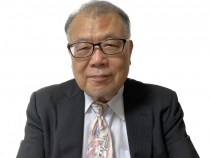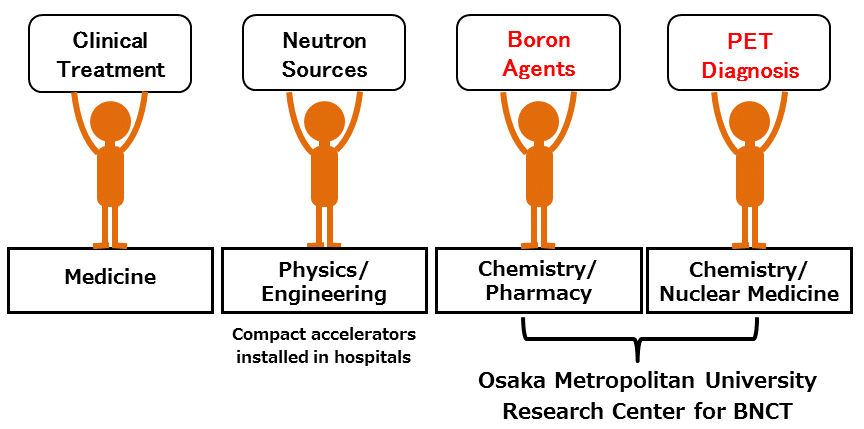About the Research Center for BNCT (RC-BNCT)
Boron Neutron Capture Therapy (BNCT) is a cancer cell-selective particle therapy that leads to the pinpoint destruction of cancer cells only by alpha and lithium particles generated through a physical reaction between 10B-boron, which selectively accumulates in cancer cells, and low-energy thermal neutrons. Compared to other cancer therapies, BNCT is attracting attention as a next-generation cancer therapy because it is minimally invasive, preserves the immune system, is gentle on the body, and offers a high quality of life.
With BNCT, the development of boron agents (boron compounds) that accumulate in cancer cells and tissues selectively and at high concentrations is recognized as a vital and essential basic elemental technology that determines the success of treatment. Osaka Prefecture University (its previous name) took notice of this need and established the RC-BNCT as a hub for the development of 10B-boron agents for BNCT by combining the university's "reservoir of knowledge" in drug molecular design and precision synthesis with the exclusive corporate 10B-boron production technologies in the Osaka Bay area. The center was established at the Nakamozu Campus in 2014 with support from the Japanese government and Sakai City. The center has an academic boron medicinal chemistry laboratory, as well as a drug discovery research center for a pharmaceutical company. This has led to new developments in boron agent research from unique perspectives through industry-academia-government co-creation, leading to development of Borofalan (10B). This drug is now being used for BNCT to treat head and neck cancers, which was approved as a clinical treatment for reimbursement under the National Health Insurance in 2020, ahead of the rest of the world.
Currently at the Center, novel boron agents are being developed that will lead to greater innovations in BNCT and a wider scope of applications for cancer tumors. R&D is also taking place on boronate PET probe molecules for cancer testing and diagnosis along with novel anticancer drugs. Other initiatives include the development of technological and academic foundations for "BNCT and related fields," sharing information for establishment of these fields, promotion of joint research with research institutions in Japan and abroad, and admission of trainees.
 Mitsunori Kirihata
Mitsunori Kirihata
Director of the OMU RC-BNCT
Learn more



